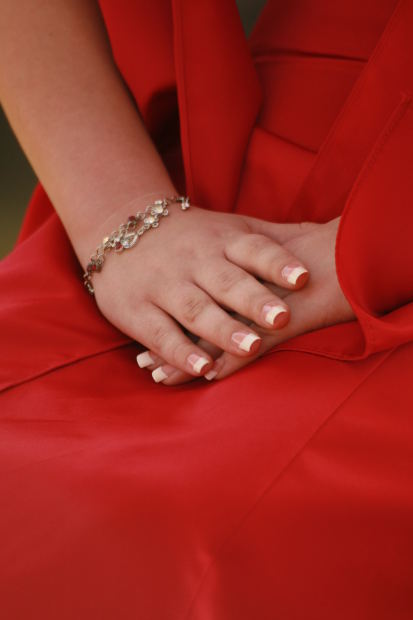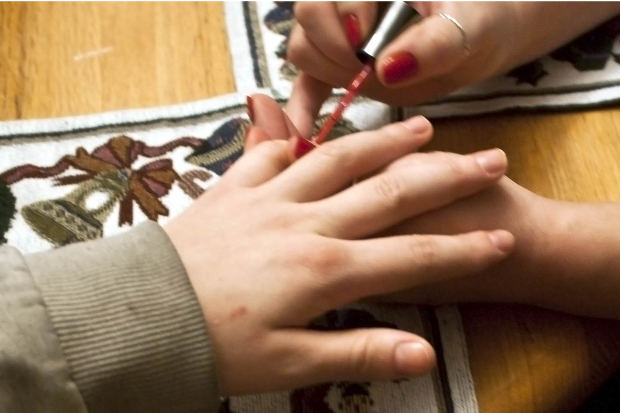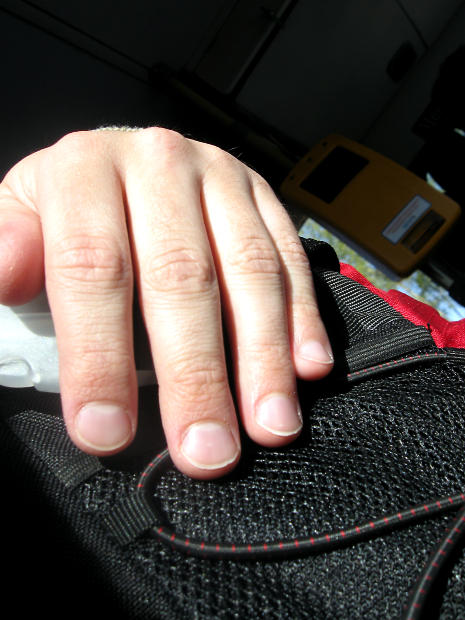Using Acrylic Nails
Preparing Your Nails:
* Clear nails of any polish or oil. Cut and file the whole free edge of your nails and push back cuticles with manicure stick.
How to Apply Nails:
* Select the correct size nails for each hand. File sides for correct fit, if desired.
* Apply glue to natural nail and distributed over entire nail being cautious not to get glue on skin or cuticle.
* Hold artificial nail by numbered border and utilize gel paste on the remaining back area where it will touch your natural nail.
* for a pivot point, slowly lower nail onto natural nail Using the follicle - hold firmly till set.
* Use paper towel to wipe any excess paste for skin before it dries.
* Apply top coating for additional shine and design protection, especially in the event you cut or file of nail.
* When finished, wipe off excess adhesive. Store glue in upright position away from heat and direct sunlight.
How to Remove Nails:
* Record the very top of the artificial nail surface to break through protective top coat.
* Don't push or pull nails off. For fast, easy removal use artificial nail remover kit.
* Cut off as much artificial point as possible. Saturate nails in acetone-based nail-polish remover until soft.
* Wipe off softened plastic and paste. Repeat process as crucial.
Click here for more cool nail information
Avoid Biting Your Nails
Just about everybody has had one or more nailbiting instant in his / her existence. Perhaps you discovered your self with nails between teeth while sitting through a boring class lecture, expecting a profession - changing conference with your manager, or anxiously observing the fate of your own favorite horror-movie heroine.
Biting nails is a custom that often begins in youth. Studies demonstrate 60% of children and 45% of adolescents bite their fingernails. Nail-biting becomes less-common after age 18, . however, it might continue into adulthood. Several adults and children are frequently ignorant they're biting their fingernails because doing this has become a habit.
The issue can range from a light, occasional custom to an on-going and more serious problem.
Why We Gnaw Our Nails
Apathy and anxiety are the nail biting offenders for most of the folks. The custom is often a way to calm stress or maybe to retain at least one area of the body occupied while the mind lacks interest. Discouragement and solitude are additional psychological triggers which can cause nail biting. Some research indicates genes might play a role.
Biting nails can be a sign of a mental ailment, including obsessive-compulsive disorder (OCD). As part of the same spectrum of conducts people that wash their hands several times in a line or check the door locks compulsively may also bite their fingernails. Several children that are nail biters also have other psychological disorders, including attention-deficit hyperactivity disorder (ADHD), oppositional-defiant disorder (ODD), separation anxiety disorder, or bed wetting.
Regular nail biting that causes severe harm for the nail and surrounding epidermis might be considered a kind of just like slicing, self mutilation and associated behaviours.
Issues With Regular Nail Biting
Nail biting has both emotional and physical consequences. Regularly biting your fingernails and cuticles can leave your fingers red and sore. The region of skin about your fingernails might bleed and become contaminated. Bacteria and infections passed from your fingers to your own face and mouth can cause you to be vulnerable to infection.
Nail-biting can also damage your teeth, leading to badly aligned, weakened teeth.
The look of bittendown fingernails can also be uncomfortable, which can just add to tension and anxiety.
Nail Biting Treatment
Many kids eventually grow from nail biting. However, for grownups and teenagers who still struggle together with the custom, some techniques have proven results.
Coating your nails using a bittertasting nail biting polish. The awful taste may discourage you from biting. You too can utilize a standard clear or coloured nail polish to avoid nail biting. The exact same approach can function to your child.
Keep nails cut short. You'll have less of the nail to bite.
Get routine manicures. In the event that you spend the amount to keep your fingernails looking desirable, you'll be less prone to bite them.
Use an alternate technique to control your stress. Take to yoga, meditation, deep breathing, or compressing a stress ball to relax you.
Place a rubber band around your wrist and click it once you get the impulse to bite your fingernails.
Wear gloves, in case you have attempted these techniques and nothing is working or put self-adhesive bandages on the points of your own fingers so your fingernails will not be available to chew.
Talk to your physician or mental health professional if fingernail biting lasts alongside tension and anxiety. It might be a signal of the much more serious mental problem, including Obsessive Compulsive Disorder, which can be handled with counselling, or medications.


